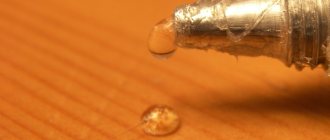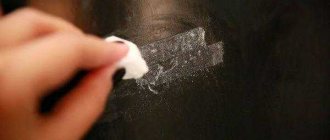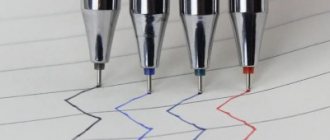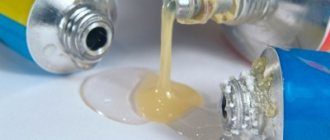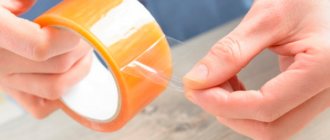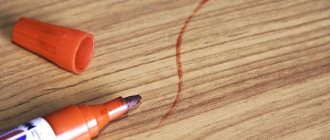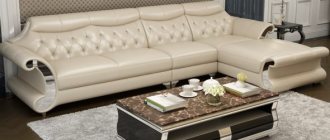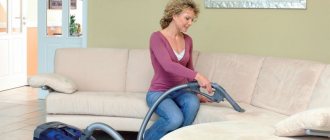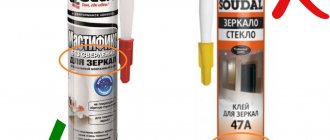Today you can hardly find a household appliance or other item that is sold in a store without stickers, sticky price tags and advertisements. In addition, there are special protective films. Beautiful, bright and modern! However, it is simply impossible to remove such delights from the surface of an object. Happened? Look at the place where it was glued. There you will definitely see a trace left from the adhesive base. Then you need to know what and how to properly remove stickers from different surfaces without damaging the item.
What means can you use to remove stickers?
The surface from which the sticker has just been removed needs urgent treatment. Otherwise, a large amount of dust will stick to it, and it will be much more difficult to clean this place. Each item is made from a specific material, which has its own structure and texture. Therefore, for any thing you need to use only certain substances and devices. The following substances can be used to clean different surfaces:
- (or any vegetable that has no color);
- Mayonnaise;
- Alcohol-containing substances;
- Ammonia;
- Esters of vegetable oils;
- Cleaning agents containing a lot of citrus fruits;
- Nail polish remover;
- Aviation gasoline, lighter fluid;
- Glass cleaner;
- Special spray for cleaning sticky components;
- Melamine sponge;
- A piece of foam rubber;
- Soft cloth;
- Any unnecessary plastic card;
- Iron;
- Blank sheets of paper.
Features of cleaning various surfaces
Stickers on furniture can end up in the most unexpected places - from back walls to fronts. If they are visually noticeable and spoil the appearance, they must be removed.
Tree
Special chemicals and home remedies will help remove the adhesive mass from the stick from the surface of wooden furniture. This could even be an ordinary school eraser, as well as heating with a hairdryer , using alcohol, etc. But it is important to consider the type of processing of wooden elements.
Polishing
Vegetable oil, gasoline, and alcohol will help remove glue contamination from a polished surface. The use of methods with heating the surface can be very limited, since when the varnish overheats, lightened spots often appear on the furniture.
Raw or Dyed
On wooden furniture without polishing, you can use the hairdryer heating method much more freely. It is also possible to apply alcohol compounds and acetone.
Textile
remove the sticker mark from the upholstery using special stain removers .
For example, TM. Dr. Beckmann. A heating method using a hair dryer or iron can also be used. In the latter case, heating should be carried out through additional fabric, avoiding direct contact of the sole of the iron with the sticker.
The mass, which has become soft under the influence of heat, can be removed with a non-sharp object. A ruler, the back of a knife, a bank card, etc. for these purposes.
Even alcohol can be used as a possible treatment option. It is better not to use recipes using oil, so as not to spoil the upholstery itself.
Leather upholstered furniture does not tolerate aggressive influences. To remove sticks, you can use gentle methods - use alcohol, special preparations, and even an eraser. You should not use household products that may leave behind stains.
Plastic
Plastic is a delicate surface . It is not advisable to use abrasive compounds on it. When using purchased solvents, be sure to clarify that the composition of the drug will be safe for plastic surfaces.
The optimal and most safe method is the heating method. If solvents are used, after removing the sticky layer, the surface should be wiped with a damp cloth to remove any remaining sticker and the product itself. Melamine sponge can also be used. Details are in this article.
Glass
Remaining glue must be removed from the glass carefully, avoiding pressure and scratching.
For stubborn stains, you can use a melamine sponge . Read more here.
Metal
The most convenient way to remove the sticky part of the stickers from metal parts of furniture is with a hairdryer. Special preparations can also be used, including those from the car enthusiast’s arsenal.
How to remove sticky sticker residue?
There are several options for removing adhesive residue from stickers. The required option can be selected depending on the surface of the product.
Peeling off
We will use this method if the sticker is not firmly glued to the product. The main part of it is carefully removed, the remnants are rolled with dry fingers into small twists and removed from the surface. Try not to scratch the remaining substance with your nails to avoid damaging the product. If you are unable to get rid of the sticker this way, proceed to the options described below.
Vegetable oil
For this purpose, take any vegetable oil. Both regular sunflower and corn, olive or cotton are great. The method of using the product is simple:
- Dip a piece of soft cotton cloth into oil;
- Treat the sticker stain;
- Wait 10 minutes for the glue components to soak in the oil;
- Clean off any residue with a plastic card or the back (dull) side of a knife blade;
- Wipe the treated area with a cloth soaked in water and detergent.
This method is great for products coated with a layer of paint or varnished wooden surfaces. Instead of vegetable oil, you can use mayonnaise.
Essential oils
It is excellent to remove glue residues using. You can take burdock, sea buckthorn or, the result will be the same.
So, the sequence of actions is as follows:
- Apply ether to the sticker stain;
- Distribute it over the entire stained surface;
- Leave for 10 minutes;
- Using a soft cloth, roll up the remainder in a zigzag motion;
- Take a paper napkin and wipe the work area;
- Finally, spray the area with any glass cleaning liquid and wipe dry.
Before using these substances, be sure to test the underside of the product to ensure that the substances do not leave stains.
Citrus
Each citrus-based product contains granules. They help to corrode the remaining glue and easily remove it from the surface. It is better to use products in the form of gels or sprays.
- Apply the substance to the stain and leave for a few minutes;
- Wipe with a dry cloth or paper napkin;
- Wipe with water and a small amount of detergent;
- Apply polish (if necessary).
Alcohol (96%) medical
It's no secret that this substance has remarkable cleaning properties. The same applies to alcohol-containing substances - colognes, perfumes, vodka, deodorants.
- Take a sponge;
- Soak it in the selected substance;
- Wipe the surface.
Be sure to test the alcohol-containing substance on the back of the product. Alcohol may react with the finish of the product and leave stains.
Scotch
Using regular masking tape, you can quickly remove sticker residue from flat surfaces. This method works especially well in the case of fresh stains:
- Remove the sticker;
- Place a piece of masking tape with the adhesive surface on the remaining stain;
- Leave the “tail” of the tape in your hand so that you can grab it tightly;
- With a sharp upward movement, tear the tape off the surface;
- If necessary, repeat the process with a new piece of tape.
Remove any remaining glue using a damp cloth. Wipe with a dry cloth.
Vinegar 9%
To remove sticker residue from various surfaces, use regular food vinegar.
- Take a piece of foam rubber;
- Dip it in vinegar;
- Apply the product to the glue;
- Leave for 10 minutes;
- Using a plastic card, remove any remaining adhesive from the surface of the product;
- Treat the area with a soft, damp cloth;
- Wipe dry with a napkin.
Kerosene or lighter fluid
Use these products with caution on acrylic painted and polished surfaces. Kerosene is an active solvent and can ruin your item.
- Dampen a soft cloth with the product;
- Use circular movements to remove glue from the product;
- Treat the area with a damp cloth and detergent;
- Wipe with a clean cloth soaked in water;
- Dry with a napkin.
Hairdryer
To remove old stains from the sticker, use a regular hair dryer. The hot air will melt the remaining adhesive and you can remove them using a plastic card:
- Turn on the hair dryer at medium power;
- Bring it to the stain at a distance of 10 centimeters;
- Gently heat the remaining glue;
- Scrape with a plastic card;
- Take a soft rag, soak it in any vegetable oil;
- Wipe off any remaining adhesive;
- Wash the area with a cloth and soap;
- Wipe with a dry cloth.
This product cannot be used on plastic surfaces. When exposed to hot air, the item will become deformed or burst. In addition, thermal exposure is not recommended for lacquered or glass surfaces.
Wet wipes
If the sticker stain is fresh, you can use regular wet wipes. Work the area in a circular motion until the residue is completely gone.
Nail polish remover (no acetone)
A nail polish remover solution and a hairdryer will help remove the price tag from a paper or cardboard surface:
- Using a hair dryer, heat the area with the remaining adhesive;
- Scrape off the adhesive using a plastic card;
- Wipe the area with a sponge soaked in nail polish remover.
You only need to apply a small amount of product onto a cloth or sponge. Otherwise, you risk damaging the product box.
Malamine sponge
This product is excellent at removing sticker stains from any surface. For example, from glass:
- Wet the surface of the product with water;
- Press the corner of the sponge firmly onto the surface of the product;
- Scrub the glue in a circular motion;
- Clean the surface of any remaining glue using ;
- Wipe with a cloth soaked in soapy water;
- Wipe dry with a napkin.
Do not use this product on items that will contain food.
Sticker Remover Spray
Currently, there are special substances that are designed to remove adhesive residues from various surfaces. Before using this substance, you must carefully read the instructions for use. It indicates what surfaces it is intended for, contraindications for use and possible consequences.
Top 8 recipes for use at home
It is advisable to remove stickers from any surface immediately, before the adhesive layer dries and sticks. The sticky layer from an old sticker is much more difficult to remove.
Heat
To treat the area with the sticker glued, you will need a regular household hair dryer.
Procedure:
- warm up the area with the sticker by directing a stream of warm air at it;
- remove the label by prying it off the edges;
- wipe the treatment area with a damp cloth.
Vinegar
Table vinegar will help cope not only with fresh, but also with dried traces of stickers. After the top part of the sticky paper is removed, perform the following steps:
- Moisten the remaining sticker with vinegar until thoroughly saturated.
- Rub the softened layer with a non-sharp object (for example, an old discount or bank card).
- Wipe the area with a damp cloth soaked in clean water or soapy water.
- If necessary, repeat the procedure.
Mayonnaise, vegetable oil
While the sticker itself is relatively easy to remove, removing the sticky layer will require some fiddling. To remove stubborn sticky mass, mayonnaise or any vegetable oil can be used.
Application:
- apply the product to the area with the stain;
- leave to act for 10 minutes;
- rub;
- wash off the residue using a soap solution or degreaser;
- wipe dry.
Processing can be carried out several times.
Petrol
Refined gasoline in undiluted form is used for processing . This method is suitable for glass furniture elements that need to be cleaned of stickers and traces of tape.
The drug is applied to the stain, and literally after 2 minutes the sticky layer can already be removed.
Stationery eraser
It is convenient to use an eraser in cases where the sticker mark is relatively small and fresh. This product will not cope with dried, dust-covered old stains.
Application:
- Moisten a napkin with water.
- Rub the stained part of the furniture.
- Wipe the area dry.
- Rub the remaining glue with an eraser until it is completely removed.
Wet wipes
You can use any commercial wet wipes. This method works well for fresh and small marks.
Application is very simple:
- remove 1 napkin from the package;
- wipe the stained area with a napkin;
- If necessary, modify a section of furniture with the edge of a ruler or other non-sharp object.
If you have a choice, it is recommended to purchase wipes that are designed for caring for furniture and cleaning glass and mirrors.
Detergent
Detergents in gel form can be used to clean various types of surfaces.
Procedure:
- Distribute the product over the area that needs treatment.
- Leave for 10 minutes.
- Rub the area with a sponge or rag.
- Rinse off.
- Wipe dry.
Preparations containing citrus extracts are considered more effective.
Alcohol
Pharmaceutical alcohol is used for processing. After the main part of the sticker is removed, the remaining adhesive on the surface of the furniture is moistened with alcohol.
The exposure time is several minutes , and during this period the liquid should not have time to dry. The remaining adhesive layer is washed off with soapy water.
You should not replace alcohol with colored alcohol-containing drinks, as they may not only be ineffective, but also stain the surface being treated.
Removing stickers from clothes
Manufacturers often put labels or stickers on clothes. In addition, some stores do not stand on ceremony, and sticky price tags end up glued directly to clothes. Removing such “art” is difficult, but possible. To do this, use the following tips:
Hot water and laundry soap
Soak the item (if the quality of the fabric allows it) in hot water. Wash the sticker area with laundry soap. Leave to soak for half an hour. Wash the fabric and rinse with warm water. If necessary, repeat the procedure again.
Spray for quick washing of collars
Currently, you can buy a special spray in stores for quick dry cleaning of collars and cuffs. This product is also suitable for cleaning contaminated surfaces of the product. It can remove even old sticker stains without affecting the external characteristics of the product at all. It works equally well on both plain and colored fabrics.
Pre-wash treatment products
There are a lot of products that are used to treat clothes before washing. These substances also work well to remove adhesive residue from stickers. Immediately before the washing process, apply the substance to the stain. After 15 minutes, wash the item in any way convenient for you using washing powder.
Label remover
These drugs can be found in hardware stores. They are called “Means for removing stickers from clothes.” For work use a brush. Apply the solution to the stain and leave for at least 10 minutes. Remove any remaining substance with a damp cloth. Be sure to wash the item with detergent.
This substance can only be used on fabrics that do not lose their color. Be sure to conduct a preliminary test on an inconspicuous area of the item.
Scotch
This method can be used on dense, lint-free fabric. Soft, thin, delicate fabrics can be ruined with tape:
- Place a piece of tape over the stain;
- With a sharp upward movement, tear off the strip, holding the fabric with your other hand;
- Repeat the process if desired.
Removing stickers using an iron
This product can only be used on durable materials:
- Turn the item inside out;
- Place a clean sheet of paper on a flat surface;
- Place the item on top so that the sticker lands on the sheet;
- Use a hot iron on the inside out;
- The glue will transfer from the fabric to the paper;
- Change sheets and repeat the procedure until you completely get rid of any remaining glue.
Alcohol
This method is one of the most effective and simple. Dampen the cloth with alcohol, leave it for a while, and remove the stain with water and detergent.
Often in everyday life the housewife is faced with the question - how to remove a sticker from plastic or other surface? Such a need may arise for various reasons.
It happens that a barcode on a dish spoils its aesthetic appearance, or a price tag remains on a new vase. Sometimes, pictures interfere with visual perception or disrupt the unity of the composition in the kitchen and bathroom.
It is best, of course, to pour all liquids into the same type of vials and bottles. But when this is not possible, you have to clean the factory containers.
The easiest way is to clean the metal and its derivatives. You can act on it mechanically without fear of harm. Different things require different approaches and care.
Let's look at the basic methods for removing stickers from glass and other materials, including how to remove stickers from furniture.
If the manufacturer used a high-strength adhesive, a sticky residue from the sticker may remain on the surface of the item. Or you won’t be able to take the whole picture at all.
In this case, the following remedies may help.
- Sticker remover (liquid or spray). It can be purchased at hardware stores or departments.
- You can place a waterproof item in water and wait for the label to soften. Then remove it mechanically - using a stationery knife or blade. This may take time, so this option is not suitable for those in a hurry.
- Remove the sticker mechanically - gradually tearing off small pieces. As a result, an adhesive layer will remain, which is easier to wash off. Not everyone has the patience and time for this.
- The sticker glued to the glass can be removed by heating it with a hairdryer. The surface needs to be blown on for 3-4 minutes, then quickly peeled off before it has time to cool. If you go slow, you'll have to start over.
- Vegetable oil (sunflower, olive or any other) helps well. They need to lubricate the price tag and leave it like that for 7 - 8 hours. After this time, the paper will easily come off.
- You can remove sticky pictures from glassware using baking soda. The procedure must be carried out with gloves. Soda is dissolved in hot water, and objects are soaked in this composition for half an hour. As a rule, after this time the labels peel off on their own, without any difficulty.
- You can use an iron on flat items. The item is covered with unnecessary fabric and ironed through it or simply warmed up. Under the influence of temperature, the binder softens and can be easily removed. It is worth keeping in mind that the textiles will be hopelessly damaged!
- One of the safest methods is the use of disinfectant wet wipes. The material in several layers should be placed on the problem area and left for 10 minutes, then rubbed. If it doesn’t wipe off, change the napkin and try again. Gradually, the impregnation of the napkin will soak the paper and it will be easy to remove. Ordinary wet wipes without special impregnation are not suitable - their use is useless.
- You can use lemon. The acid softens the surface well and facilitates the process. The method is not suitable for electrical goods, as it can damage them.
- If it is not possible to use chemicals and softening agents, a regular eraser can help out. You will have to run the eraser over the item for a long time, but in the end it will be clean.
Household chemicals
All of the above methods for removing foreign elements from the decorative surface of furniture do not involve any special time or financial costs. In most cases, you always have such substances available at home. However, in hardware stores there are also professional household chemicals intended for similar purposes.
Household sticker and label remover
Using special compounds you can remove any stickers and decals from a wide variety of surfaces. Most often, such compositions are produced in the form of aerosols for easy application. These products do not cause damage to furniture, and after use, they do not leave any traces behind, evaporating in a few minutes. Many compounds can be used as a polish to add shine to the surface after removing the sticker.
To remove all labels and stickers from furniture, you can choose any method, but it is better to do this immediately after purchasing the item, before the glue penetrates deeply into the structure of the material. After all the procedures, do not forget to take care of your furniture, remove dust from it, wipe it with a soft cloth, and keep it looking beautiful.
Another interesting article: How to clean a carpet from plasticine.
Removing sticky marks from a sticker
Removing the paper base itself is not difficult. But, in many cases, after removing the paper picture, the question remains - how to remove the glue from the sticker.
There are several proven methods for removing glue.
- Wipe off remaining glue with acetone, nail polish remover or solvent. These are aggressive chemical liquids that can negatively affect plastic and other materials. To avoid negative consequences, you need to test on a small piece. It is worth keeping in mind that this technique is absolutely not suitable for most types of plastic!
- To remove glue from furniture, you can use vegetable oil. You need to saturate the cotton wool with oil and lubricate the sticky area.
- Any alcohol can handle especially resistant hot melt adhesive.
- You can quickly clean off the remaining adhesive tape using kerosene. They need to wipe the area being cleaned. It has a specific aroma, so you will have to ventilate the room well.
- Melamine sponge has recently become increasingly popular. It is believed that it is capable of removing any stains from any items. It needs to be slightly moistened with clean water, squeezed out and rubbed on the desired area. Plastic and glass surfaces are especially easy for her.
Problems with simple removal
As a rule, when you are completely tired of a sticker, you take it by the edge and start peeling it off. But on the surface of the furniture, most often, there are scraps of the lower layer, which adhere very tightly to the adhesive base.
Although, sometimes the sticker can be removed completely. But after a while, a dark gray spot of dust that has settled on the remaining glue accumulates in its place, which sometimes looks worse than the old sticker itself. To prevent this from happening, the glue in the place of the former decoration should be removed immediately, which is what the following tips will help you with on how to remove old stickers from furniture.
Removing stickers from a car
There are situations when car owners need to thoroughly clean their car. During operation, various information on paper, vinyl and film is pasted onto the body and windows of the car.
Removing a sticker from a car window or door can be very difficult. Under the influence of sun, wind and other climatic factors, the properties of vinyl change.
If the coating is fresh, then you only need a special dishwashing detergent. They need to soap the problem area and leave it like that for a while. Then you need to carefully pick up the corner, pull it and remove it completely.
You can physically influence old pieces of paper. For example, using a knife or a sharp chisel. This technique is fraught with scratches and other damage to the body.
The use of chemicals - solvents and acetone is also not recommended. There is a high risk of damaging the car's paintwork. It is best to use narrow-acting sprays and liquids designed specifically for these purposes.
There are quite a lot of their varieties on the market, and everyone can buy one that suits their situation - for every taste and budget. Before using them, you should always do a test in an inconspicuous place on the body, and be sure to protect your hands with latex or silicone gloves.
Our stickers can be removed without problems
“Vinyl Lepot” stickers are made from high-quality vinyl film and in most cases it is not difficult to remove the sticker: you just need to pick up the corner of the sticker and pull - the sticker will separate from the surface in one piece. Possible glue residues can be easily removed with a cloth soaked in glass washing liquid, for example (other options for glue removers are given below).
Of course, the type of surface on which the sticker is applied is of great importance. Our stickers can be removed from all smooth, even surfaces without any problems, but with paper wallpaper, for example, you need to be careful not to tear off the top layer of wallpaper with the sticker. You can read about the best surfaces to apply our stickers to here.
So, you will not have any difficulties in removing our stickers, but in life you have to deal with different cases, and sometimes useful tips on removing stickers come in very handy.
How to remove a sticker from a book
Unfortunately, supermarkets often stick price tags directly onto the beautiful covers of magazines, books and textbooks. Few people like this and, when they come home, they want to find out rather than remove the barcode.
First of all, you can use a thin blade, carefully pry up a corner and slowly peel off unnecessary information. If this option is not suitable, you can use tape - it is applied over the price tag and removed with a sharp movement.
This option cannot be used on a paper surface to avoid damaging the image on the cover. The simplest thing is to heat the book with a hairdryer. Warm air will make removal easier.
Automobile
Motorists often face the problem of removing stickers. For these purposes, the easiest way is to purchase a special cleaner for removing glue. It is applied to the clean surface of the car from a distance of about twenty centimeters. Don't try to remove the product instantly; wait a minute or two for it to take effect. Then we wipe away the traces of the sticker with a microfiber cloth.
A hairdryer and a cloth moistened with alcohol are also quite suitable. Heat the old sticker with a hairdryer, carefully remove it, you can use a plastic spatula, and then wipe the contaminated area with a rag moistened with alcohol. Remove traces of alcohol with a clean cloth.
Another object that always suffers from adhesive tape is plastic windows. It must be removed before you level the slopes. There are several removal methods.
The mechanical method has proven itself to be the best. After removing the film with a sharp movement, the adhesive layer is removed either with a plastic spatula, or a soft metal wool, or a scraper for glass-ceramic surfaces. Remains of glue can be removed with any acrylic solvent.
With a lot of hard work and plenty of time, the remnants of the adhesive base can be removed with an eraser and white spirit.
Now you can get rid of any stickers, stickers, adhesive tape in your home quickly and easily!
Source
Safety regulations
Removing unnecessary information from plastic or glass is quite easy.
However, it is worth remembering certain rules so as not to spoil your favorite thing:
- It is undesirable to use forks and hard brushes, which can ruin the appearance of the item; it is better to wipe the label with a cotton swab or cloth;
- electronics should not be washed with water or oil to avoid unwanted damage;
- before using one or another method, carefully study the properties of the coating and the manufacturer’s recommendations (you can also try the product on a small, inconspicuous area);
- to erase faster, you can warm up the surfaces with a hair dryer in between scrubbing;
- Before using solvents, it makes sense to wear rubber gloves before starting work and ensure that the room is well ventilated.
Thus, removing unnecessary information from glass, metal, plastic and other surfaces is quite simple.
Most of the drugs and improvised means are available in every home. There is no need to go to the store and spend additional money and time. If one method does not work, you can always use another.
The main thing is to take precautions. It is better to work with chemical liquids with silicone gloves. After work, you need to thoroughly ventilate the room to protect yourself and your loved ones from harmful fumes. If children live in the house, chemicals should be put away immediately after use.
You may feel uneasy when you see the remaining part of the sticker. Most likely, this has happened to you more than once: you bought a new item, removed the price tag, and in its place there was a sticky surface that was very difficult to remove. However, this problem can be solved. Choose a method to remove the remaining portion of the sticker based on how firmly it is attached to the surface. First, try removing the sticker by scraping it off the dirty area. In addition, use products that every housewife has on hand, such as vinegar and alcohol. Finally, you can soak the stained area of the surface to remove any traces of the sticker.
Professional products
Modern preparations sold in retail outlets will help you get rid of traces of glue quickly and without consequences. The most popular of them:
- Scotch Remover. Removing traces of tape and labels is the main purpose of this product. It contains active citrus oils, which help dissolve stains from stickers, tar, resin and self-adhesive films.
- Liqui Moly. A universal sticker cleaner will help you completely remove marks from glass, metal and resistant plastic. Consists of natural ingredients.
- ASTROhim. The product contains a complex of special additives that penetrates deep into the dirt, after which it softens and partially breaks down. Quickly removes stubborn adhesive stains and traces of bitumen, while being safe for the surface being treated.
- Profoam 2000. Broad-spectrum cleaner. Suitable for processing any coating, odorless, removes traces of glue, labels, markers, oil and many other contaminants.
- Fine Glass. The main purpose is glass cleaning. In addition, the mixture completely washes away adhesive traces on dishes, ceramic surfaces, metal and most types of plastic.
Steps
Erasing, pressing and scraping
Using soap solution and vinegar
Other Home Remedies
- Other effective cleaning agents include WD-40, aerosol deodorants and perfumes, non-oil based nail polish remover, and the like. However, please note that the more ingredients in a product, the more likely it is to stain absorbent surfaces such as fabric or wood.
- A good scraper can be made from plastic utensils, an old credit or bank card, or special plastic paint scrapers.
- Pour some nail polish remover onto a paper towel and lightly rub it over the sticky area. Glue residues can be easily removed from the surface.
- Cover the dirty metal surface with corrector and rub with an eraser. Thanks to this method, not a trace of the sticker will remain on the surface.
- Be careful when scraping the label off the plastic. Prolonged scraping may damage the plastic.
- If you are not sure about the safety of the chosen product, use a soap solution, as it will not cause harm when removing the sticker.
- Disinfecting wipes are a great way to remove sticker residue.
- You can easily remove sticker residue from your phone or its case by soaking a cotton swab in nail polish remover. Wipe the contaminated area with the swab. After that, wipe the phone or case with a clean cloth.
Nail polish remover
It should be used with caution. Although it is intended for removing nail polish, and does not have such a strong effect on ordinary polish, you should manipulate a cotton swab dipped in it very quickly.
How to remove a sticker from furniture using it:
- Apply liquid to the tampon.
- Press it against the sticker or the remaining glue.
- If it’s a sticker, then wait a couple of minutes and start erasing it using the same swab.
- In the case of glue residues, it’s easier - they will be erased from the surface instantly.
- Then wash the surface with soapy water or dishwashing detergent.
Ready! All you have to do is wait until everything dries, and then rub the varnished surface until it shines and that’s it. Now the place where the sticker was cannot be distinguished from the rest of the surface.
Warnings
- Always test your chosen product on an inconspicuous area to see if stains will remain. In some cases, the surface may be damaged, stains may remain, or the color of the surface may change. This often happens when removing stains from a plastic surface.
- When using substances that emit harmful fumes, ensure that the surface is cleaned in a well-ventilated area.
- Be careful when handling flammable substances.
Manufacturers and sellers sculpt price tags, barcodes and various adhesive labels anywhere. And when purchasing a new thing for your home, you have to puzzle over how to remove the sticker from a new refrigerator or a plastic window frame. It may also be necessary to remove the glue after a boring sticker on a closet in a nursery, on a mirror in a bathroom, or on a car body.
What is the best thing not to do during cleaning?
In order to comply with all safety measures, to protect the surface from damage, and to preserve your own health, you need to act according to the rules when wiping the picture.
What is prohibited to do:
- Scratch antiques with a knife.
- Smoking while using the spray.
- Strike a match or lighter.
- Spray near the heater.
- Tear off a part. Otherwise it will be difficult to tear off the remaining one.
- Use chemicals indoors. Without ventilation, you can get poisoned.
If you can follow all the recommendations, you will be able to easily clean your interior items of excess stickers at home.
Fighting stickers: general information
Any cleaning begins with an attempt to carefully remove the harmful sticker. This is especially important for vinyl Velcro, which will prevent solvents from reaching the adhesive base. In some situations, the process is so successful that you just need to wipe the area with soapy water to get a clean surface.
To remove an old sticker, you often have to use heat, which softens the adhesive. Some items are heated over a fire: a candle or a gas burner; for others, a regular hair dryer is suitable. If you need to remove the sticker from porcelain or glassware, ceramics, enamel or steel pans and pots, you can keep them in boiling water.
You can remove the remaining layer of glue using improvised means. You just need to determine what kind of glue was used. If the glue is soluble, you can remove it:
- any vegetable oil;
- alcohol or vinegar;
- white spirit or gasoline;
- acetone and similar solvents.
You can determine how glue dissolves without any chemical laboratory. Many available means will help you remove both the unnecessary decoration itself and the stickiness remaining after the sticker using a trial method. It's better to start with vegetable oil, vinegar, cologne or nail polish remover, which can be found in any home. And if they don’t help, then move on to “heavy artillery.” But when choosing how to remove glue from a sticker, we must not forget about the properties of the soiled surface itself.
When purchasing a particular product, you may notice that it is decorated with a branded sticker or price tag that must be removed from the surface. Sometimes this does not cause any particular difficulties, but there are times when the sticker is glued tightly, and even after getting rid of it, you are faced with the problem of removing the adhesive base.
How to remove glue from plastic and other surfaces? How to remove glue from a sticker from a can, and how to remove a pasted sticker from the glass of your car? You can use a wide variety of methods and means .
Plastic furniture and household appliances
It is better to remove the sticker from plastic furniture, window frames or household appliances as soon as possible. This material easily absorbs glue, so protective films and decorations stick to it “to death” very quickly. One season is enough for the glass unit and masking tape to become one. How to remove such a sticker from plastic?
First, they heat it up with a hairdryer and try to remove as much of the dried mass as possible. In some cases, hot air can ruin the decorative effect of the coating. Then the already known vegetable oil comes to the rescue. It is poured directly onto the surface of objects or a rag soaked in it is placed on vertical surfaces.
White spirit or alcohol makes it easy to remove the sticker from the surface. But they can also remove the top layer of plastic. Therefore, first they check on the secluded parts of the object.
How can I remove sticker marks?
Depending on the type of surface, an effective product for removing stickers and adhesive base is selected. How to remove glue from a sticker, and what cleaning composition should I use to reduce the stickiness of the base? The problem can be solved using:
- melamine sponge;
- vegetable oil;
- alcohol;
- mayonnaise;
- vinegar;
- lemon juice or acid;
- ammonia;
- soap;
- essential oils;
- acetone and white spirit;
- nail polish remover;
- kerosene;
- liquids for glasses and mirrors;
- soda;
- stationery eraser;
- wet wipes and other things.
Once you have decided on a product, test it on a small area before wiping off the attached price tag or sticker. Some substances are not as harmless as they may seem at first glance and you can cause irreparable harm to a new item.
How to quickly remove with special preparations?
Special products are available for removing stickers and tape. They allow you to quickly and accurately remove glued pieces of paper from different surfaces.
Kangaroo Scotch Remover
The tape cleaner is available in aerosol form with a stated volume of 420 ml. The product will help remove stickers, tar and other petroleum products from furniture, tiles, and cars.
Scotch Remover is based on natural active substances that penetrate the adhesive layer and destroy it. This allows you to remove stickers without leaving a trace. The can of product is shaken before use and sprayed from a distance of 0.2 m.
Cost – from 500 rubles. You will find reviews here.
Ruseff tape adhesive remover
The RF production product can be purchased in the auto chemical goods department. In addition to paint surfaces, the drug can be used on a wide range of types of surfaces:
- plastic;
- metal;
- glass;
- ceramics, etc.
The foam formed during application is easily retained even on vertical surfaces, allowing you to soften and then remove the sticky layer without any problems. The cleaner has a pleasant aroma and does not cause corrosion when it comes into contact with metal parts.
Exposure time is a couple of minutes after application . Remove the product along with the sticky layer with a rag or sponge. If necessary, processing can be carried out again. Price – about 1,000 rubles.
Prosept Duty Universal
The remover of stickers, tape and glue has an enhanced effect due to the inclusion of effective solvents.
The drug removes:
- greasy marks,
- traces of toners,
- stickers,
- markers, etc.
Prosept can be used on glass, wood, aluminum and other surfaces. Can also be used to remove sticky marks on cars and furniture. Price – from 400 rubles. Read reviews here and here.
How to remove a sticker from a car window
If the decoration on the glass of your car appeared relatively recently, you can remove it without using any means.
- Try to carefully pry up the edge of the sticker using your fingernails or a mild knife, and remove it without making any sudden movements.
If this method does not help and the sticker does not want to be removed, use a hairdryer. How to clean the surface and remove glue from the sticker in this way?
- Warm up the jewelry for 5–7 minutes, after moistening it with water and holding the hair dryer at a distance of 15–20 cm from the glass. Once the sticker has warmed up enough, you need to remove it immediately, otherwise it will harden again.
- You can wipe the sticker with acetone or vegetable oil, and then remove it with a rubber spatula. If the sticker is located on the interior side, make sure that drops of the substance do not fall on the seat upholstery when you erase traces of glue.
Traditional methods for removing traces of stickers and tape
Traditional methods are also fairly common ways to get rid of stickers and labels. With their help, the adhesive trace from the sticker is wiped off without much difficulty. Most often, traditional methods attract attention because they are relatively cheap.
Moreover, equipment for many of the methods we present is always at hand at home. So, next we will talk about how to remove the label from a glass bottle and other surfaces and look at the best recipes for cleaning it yourself.
Heat treatment with a hairdryer
The best way to remove stickers from glass is heat treatment with glue. Just turn on the hair dryer on the weakest setting and slowly warm up the desired area with a stream of hot air.
The main advantage of heat treatment is the heating of the glue. The composition of such a product means that the label will be much faster and easier to remove, including from wooden surfaces. After the glue is heated, it can be easily removed with a rag or napkin.
Using alcohol or acetone
Those who are looking for a solution to how to remove label glue from glass online often come across instructions using alcohol solutions. These mixtures are really great for removing glue. This is because they enter into peculiar chemical reactions with the adhesive. This will allow you to soften and, accordingly, remove traces of glue much faster with a cotton swab soaked in alcohol.
In addition to alcohol, a small amount of acetone can be used. It is important that this method can only be applied to those surfaces that are not susceptible to exposure to aggressive chemicals.
Distilled vinegar
Another popular label remover is distilled vinegar. You just need to wipe the blot with it, washing away traces of the sticker, and it will be quickly removed.
Suitable for dealing with only small stains. For more serious stains, this method will not be the most effective.
Masking tape
You can also remove any remaining glue from the sticker with masking tape. It is enough just to stick such adhesive tape on the damaged area and press it firmly over the entire area with your hand. We sharply tear off the crepe.
The procedure must be repeated exactly until the ideal result is achieved. This method is considered one of the safest for delicate surfaces.
Using sunflower oil
Methods for removing labels from jars using sunflower oil are also common. So, you need to carefully cover the remaining glue after the label with an even layer of vegetable oil.
Leave the surface in this state for about five minutes so that the paper is saturated. After this, you need to scrape off the softened sticker. This can be done either with a knife or a plastic card, or with your nails. Residues of glue after this procedure can easily come off under hot water and dishwashing detergent.
Eraser
It’s strange, but almost all instructions on how to clean glass from glue state that its residue can be easily erased with an ordinary school eraser. To do this, simply rub it gently and without unnecessary pressure over the stain.
It is important not to overdo it. Otherwise, mechanical damage may be left on the treated surface.
Wet wipes
If you have to wipe off a small stain, first try to solve the problem using wet wipes. Gently rub the damage with them - it is likely that it will be removed.
The principle is simple: you need to rub until the damage is removed. The disadvantages are a waste of time and the inability to use with fabric surfaces.
Microfiber sponge
Another solution for removing stickers from furniture is microfiber sponges. According to the principle of their action, they are in many ways reminiscent of ordinary wet wipes.
But it takes less time to clean the glue stain. Accordingly, not so much effort is put in either.
Refined gasoline
Gasoline is an excellent way to remove stickers from glass. It is enough to moisten a rag or napkin with it and gently wipe the glass.
In this case, you need to apply a little effort, because in the case of active pressure, the fragile glass surface can be damaged. Thanks to chemical reactions, the glue will quickly lose its structure and can be easily removed.
Lemon or citric acid
Another popular way to clean a glue stain is to soak it in lemon juice. In this case, it is not necessary to squeeze the juice out of the lemon and pour it over the surface. All you need to do is gently wipe the stain with a piece of fruit.
It is important to note that if there is no citrus in the house, it can be replaced with a solution of citric acid. To do this, dilute 2 tablespoons of powder in 100 ml of warm water. Then soak a rag in the solution and treat the dirty area with it. Leave for 5-10 minutes, then wipe the area with a soft, damp cloth.
How to remove stickers from furniture
- To remove stickers or price tags from fabric upholstery, use liquid soap. Dilute the foaming agent in a small amount of water and apply to the sticker using a sponge or soft cloth. When the surface is wet, remove the price tag.
- Afterwards, the area of fabric must be rinsed with clean water to remove any remaining soap and traces of the sticker, and dried with a hairdryer.
- You can also use tape. Glue the tape over the label, and with a sharp movement, tear it off along with the sticker. You can use this method and stick the tape onto the fabric, provided that the upholstery material has sufficient strength.
Chemicals
There are industrial pastes and liquid formulations on sale. Their formula is specially designed to remove adhesive solutions from wood surfaces and eliminate oil and tar stains. They are actively used by restoration workshops.
Instructions for use are usually printed on the bottle. There is no point in retreating from it and experimenting, wanting to enhance the effect of the composition. Otherwise, the furniture may be damaged. Usually the product is applied directly to the sticker and left for the time specified in the instructions. Next, the sticker is easily removed from wood or plastic; any remaining adhesive is removed with a soft cloth, onto which a small amount of industrial paste has previously been applied.
The use of special pastes allows labels to be removed quickly and without damage to the product, but they are not cheap. They must be used in strict accordance with the manufacturer's recommendations.
How to remove stickers from the refrigerator
If the refrigerator is decorated with a sticker, test the selected products on an inconspicuous area before starting to wash the surface. How to remove a sticker from a refrigerator? You can use alcohol-containing compounds, acetone or kerosene.
- Apply the liquid to the surface using a sponge or cotton pad, thoroughly moistening the sticker. After it has been soaked in the solution, carefully remove it with your hands, and then rinse the surface to remove any remaining substance.
Appliances
On household appliances - refrigerator, washing machine, blender, multicooker - manufacturers put various barcodes, warranty stickers, information stickers and price tags.
Usually such “Velcro” can be removed quite easily. If the sticker sticks firmly, you can heat it with a hairdryer.
To remove the sticky layer, use table white vinegar; window cleaner also works well for such tasks. After the adhesive is removed, wash the contaminated area with detergent (you can use dishwashing detergent) and then wipe with a dry soft cloth.
Another remedy that has worked well in this case is soda. Baking soda has a gentle abrasive effect, so it removes many stains well. Make a paste of baking soda and water and rub it over the area with the glue. The glue will form balls and come off easily.
How to remove glue from a sticker from plastic
How to remove a sticker from plastic or plastic? How to remove marks from plastic windows? Plastic is a material with a smooth surface, and the adhesive base does not “eat into” it, as, for example, is the case with fabric upholstery. For this reason, it will not be difficult for you to rid the surface of the price tag or traces of glue.
The following methods can be used to clean plastic surfaces:
- Remove the sticker by hand. Carefully pry up the edge of the decoration and remove it from the surface. The adhesive base can be rolled into pellets using your fingers or an eraser. Once the surface is clean, wipe it with a damp cloth and then remove the moisture with a paper towel. The main thing is not to try to peel off the glue with your nails, as this can lead to ruining your manicure.
- If the sticker sticks firmly and does not want to be removed, use vegetable oil. Apply the product liberally to the sticker using a cotton pad or paper napkin. Wait 15-20 minutes until the greasy composition is absorbed into the sticker and neutralizes the glue. After this, clean the surface with the blunt side of a kitchen knife or a rubber spatula.
After removing the adhesive base, the plastic to be cleaned must be washed with soap or dishwashing gel and then wiped dry.
How to clean glass
It is necessary to clean the glass from glue residues very carefully so as not to leave scratches. It is not recommended to use sharp objects or try to scrape off the adhesive layer from the glass surface. To remove the adhesive base or remove varnish, the simplest but most reliable products that can definitely be found in the house can come to the rescue: gasoline, table vinegar and essential oil.
Essential oil
Using essential oil (if you don’t have one on hand, you can take regular vegetable oil) to remove the label and residue from the adhesive base, you can not only easily and quickly wipe off the sticky layer, but also fill the room with a fresh aroma.
Algorithm of actions:
- Apply a few drops of oil to the sticker mark using a clean piece of cloth or a cotton pad.
- Then use a piece of fabric to rub the surface of the object, rolling off the remaining glue.
- Next, rub the area with a paper towel.
- If marks remain on the glass, the procedure must be repeated until the stain completely disappears.
- You can wash off any remaining oil with any glass cleaner.
Vinegar
The most common eleven percent vinegar will cope with fresh, old and dried sticker marks.
To remove the sticky layer, do the following:
- Moisten the contaminated area with the concentrate and wait five minutes for the label and glue to deoxidize better.
- After this, use some thin object (you can use a plastic card) to remove the remaining sticker.
- Wipe the surface of the glass with a damp sponge dipped in soapy water.
- If the stains remain, the procedure can be repeated again.
What’s noteworthy is that this product is not an aggressive cleaning liquid, so you can safely rub any surface with vinegar.
Petrol
Gasoline can quite cope with cleaning a glass surface from a layer of glue. It is worth remembering that this product is only suitable for glass or similar surfaces. It is highly undesirable to apply flammable liquid to furniture or plastic painted with alkyd paints or varnishes.
How to remove sticker adhesive from metal
On metal surfaces, you can use both liquid solvents and mechanical methods (for example, removing with a school eraser), as well as heat using a hairdryer.
After the sticker is removed, treat traces of glue with the selected product and carefully clean off the residue. If you use a hair dryer, wait until the adhesive base becomes soft, and then roll it into pellets using your fingers.
The surface cleaned of glue must be wiped with a damp cloth and then wiped dry.
Five ways to remove a label from a book
- Take the tape, stick it to the label and carefully tear it off. Repeat the procedure with new tape until the sticker comes off completely;
- Iron the book through a thick fabric or warm it with hot air from a hairdryer. After this treatment, the adhesive composition will melt, and the base can be easily removed with a soft brush or cloth. You can also hold the book over boiling water;
- For a glossy cover, use alcohol, acetone or white alcohol. The solvent is applied to a cotton pad and the sticker is removed from the surface;
- Rub flour, starch, baby powder, laundry detergent or other non-abrasive dry crumbly product into the remaining glue;
- The remains of the label with a matte cover are removed with a school eraser.
How to remove glue from a bottle label
If you decide to get rid of a sticker on a bottle, the method of removal will depend on what material it is made of - glass or plastic.
- Glue from a glass bottle can be removed by placing the container in a pan of hot water (not boiling water!) for 15–20 minutes. After this, clean the bottle from traces of the adhesive base using a hard sponge and dishwashing liquid.
- If the container is plastic, exposure to hot water may cause it to deform, and cleaning with a wire sponge may cause scratches. Use more gentle methods, for example, wipe the surface with a slice of lemon or vegetable oil, and then rinse off the remaining adhesive base under running warm water.
Types of stickers
The purpose of stickers is to inform the buyer. They contain information about the manufacturer, the shelf life of the product, and the rules for its use. The labels are attached with glue in any case, but the methods of their removal depend on the material from which they are made.
Polymer based
Polymer-based stickers are made of plastic. Their material resembles a thin but durable oilcloth. Polymer labels can be easily separated from the surface if they have been recently applied. They do not tear, leaving behind small pieces of paper. If the glue has not had time to dry, it can be quickly removed from any surface.
It is difficult to peel off the sticker without leaving marks if the glue has already dried. In just 2-3 days it manages to undergo the polymerization process and turns into a solid varnish. The sticker adheres strongly to it, so it breaks when removed. Polymer varnish is difficult to remove from any surface.
Paper based
These stickers are made from paper. It is not very durable, so when you remove the labels, they tear and turn into small pellets.
It is easier to clean the surface of the material from sticker residues: just moisten it with warm water. Paper labels come off easily when heated. And vegetable oil removes the pellets from them.
How to remove label glue from glass
When a trace of glue remains on glass or mirror surfaces, you need to act with extreme caution.
- Do not clean glass, mirror or window with sharp metal objects, as this may cause cracks and scratches on the fragile surface. Solvents should also not be used, since the aggressive action of chemicals leads to stains remaining on the glass or the surface becoming cloudy.
- In such cases, essential oil will help. Moisten the remaining adhesive base with the product, and then wipe the surface with a soft cloth, rolling off the adhesive. After this, the surface should be washed using a cleaning composition for glass and mirrors.
Tips and tricks:
- Rubber stickers are very easy to remove: turn the clothes inside out and use an iron to heat the sticker through gauze. Remove it before the glue cools down.
- Thermal printing can clean alcohol. Place the product on a hard surface and use a cotton swab soaked in alcohol to erase the image. The drawing should not be smeared, but rather brushed away.
- Transfers that do not adhere well to fabric can be removed with alcohol: thoroughly saturate the decor with the product and, without allowing the alcohol to dry, quickly wash the product with powder.
- Images made with a marker or paint will help remove acetone, alcohol or solvent. After each cleaning, clothes must be washed. Keep in mind that this treatment may fade the colors on the clothing, so we recommend restoring the appearance of the item with a new sticker or inscription.
- Drawings made with alcohol-based markers should be removed with alcohol; fat-based paints should be removed with vegetable oil.
Important! You cannot use aggressive agents on synthetic products, as a hole will remain in the place of the beautiful inscription.
- Remove shiny marks left by rhinestones and sparkles using napkins and a hairdryer or iron.
- The pharmaceutical product “Dimexide” copes well with traces of removed inscriptions, applications, as well as traces of glue.
Before removing a sticker, carefully study the information on it. Perhaps there are recommended rules for caring for the product from the manufacturer. From a separate article on our portal of useful tips, you can learn how to decipher the signs on clothing.
